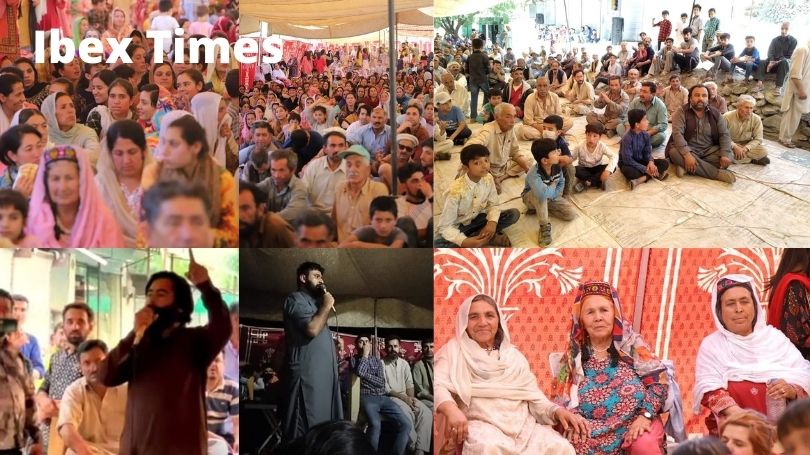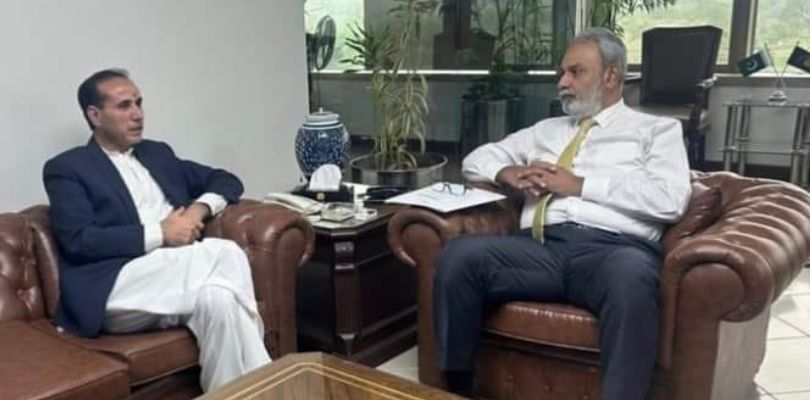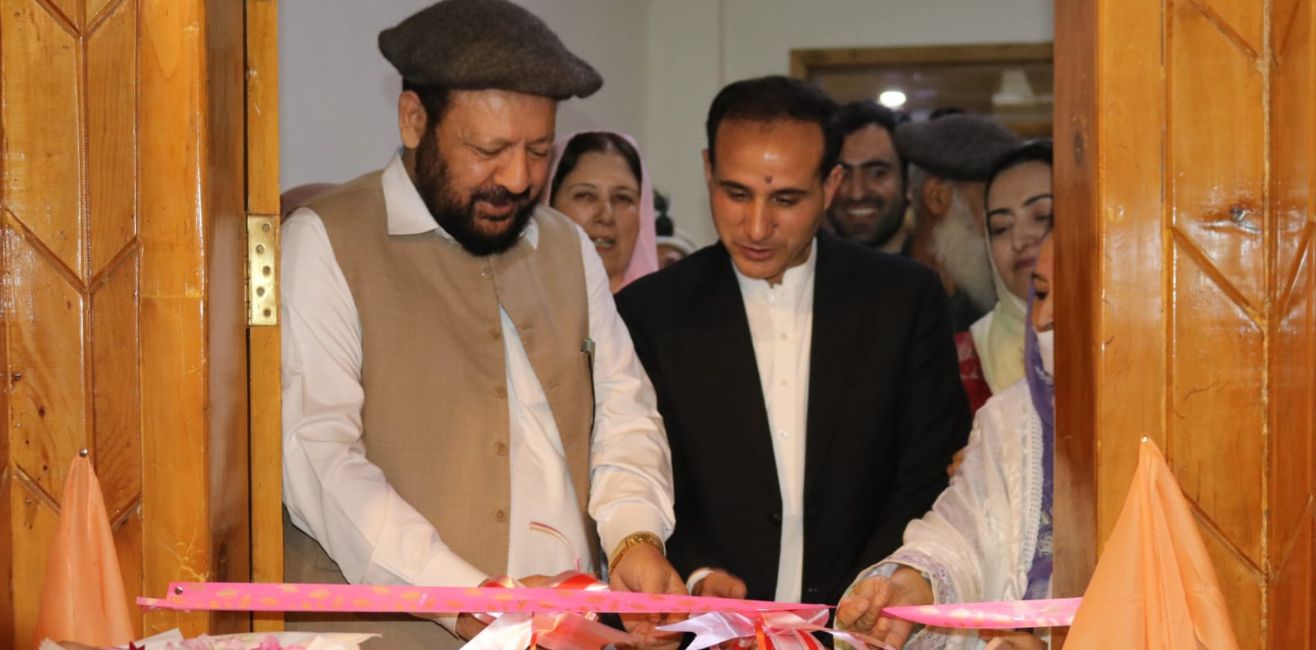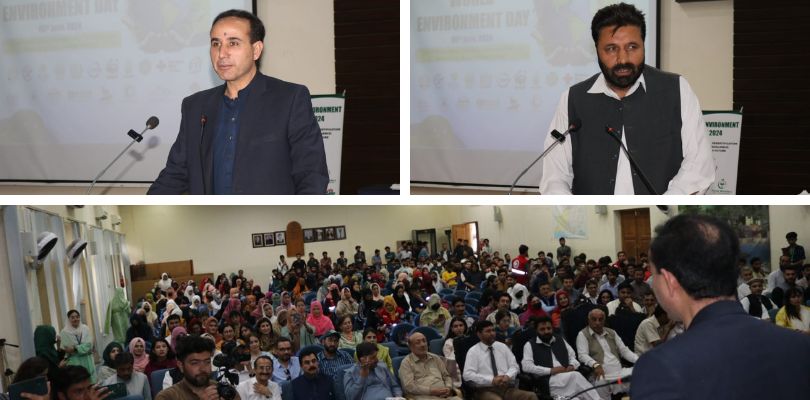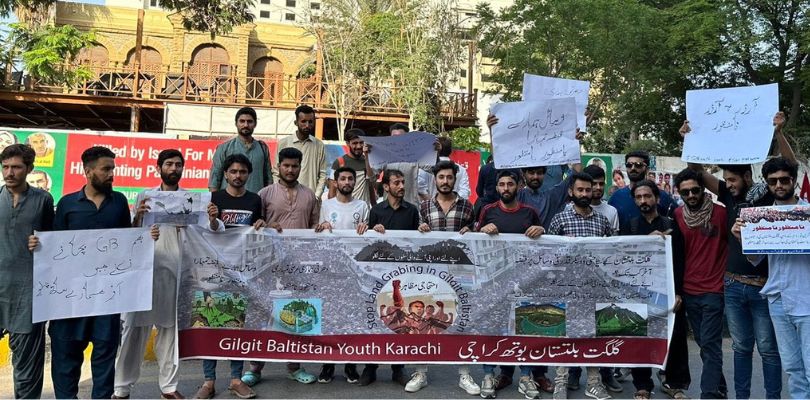Eight days long sit-in staged by the people of Nasirabad Hunza on Karakoram Highway finally came to an end on Saturday evening after an agreement was reached between the G-B government and the protesters.
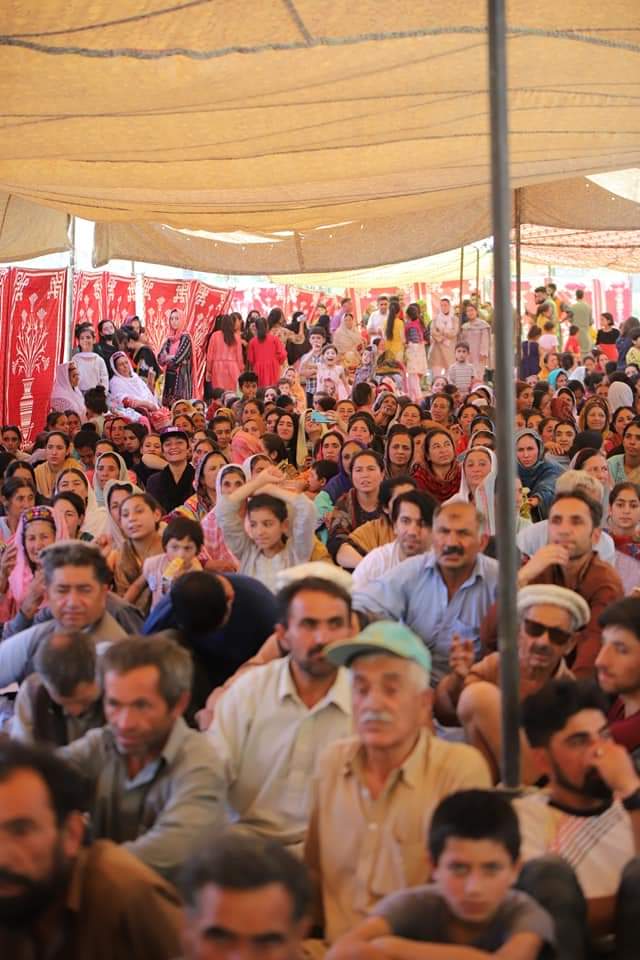
The sit-in was staged in favor of two important demands: (a) provision of the mining license to a local mining company and (b) cancelation of the mining lease given to a non-local investor in violation of local customs.
While talking to Ibex Times, the organizers said the protest demonstration ended after the G-B government agreed to fulfill their demands in letter and spirit.
A notification was issued from the Chief Minister’s Secretariate granting the mining license to local company representing the people of Nasirabad village thus accepting one of the two demands of the protesters.
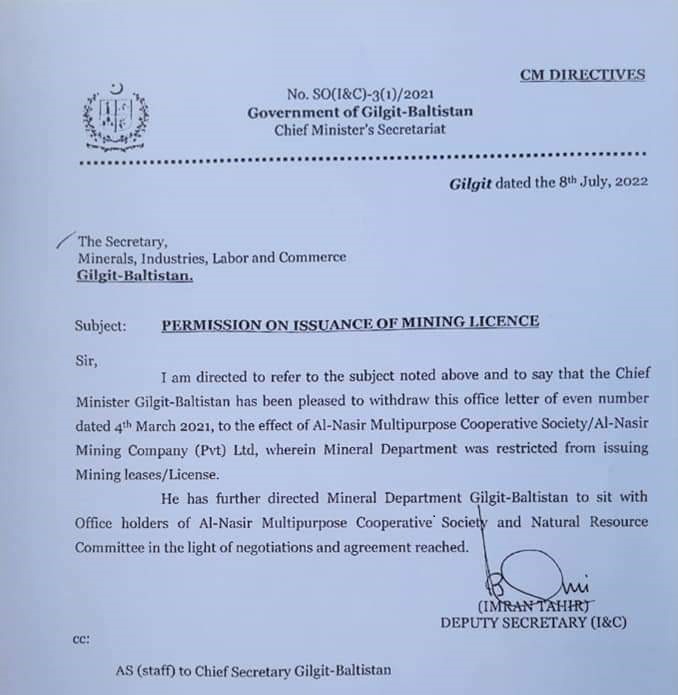
The notification, however, does not talk about the demand for the cancelation of the mining license awarded to a non-local company in violation of local customs.
What led to the sit-in?
According to the sit-in organizers, a nonlocal company, with support of Frontier Corps (FC) and police, was creating hurdles to access a mineral reserve site in Nasirabad thus provoking the villagers to protest. The non-local company had acquired mining licenses in violation of local customs with the connivance of local facilitators and concerned departments.
Solidarity and call for region-wide protest
The courage, high spirit, steadfastness, and unity demonstrated by the men, and women of all ages of Nasirabad Hunza during the sit-in won appreciation and sympathies of people from across G-B. They are hailed as a source of inspiration and motivation for people of other areas of the mountainous region to raise their voice for the protection of indigenous rights.
In a show of solidarity, prominent social, political, and civil society figures participated in the sit-in and addressed the protestors. They expressed their support for the people of Nasirabad. In addition, tens and hundreds expressed their support and solidarity with people of Nasirabad through social media.
There was a likely spread of the protest as social and political activists suggested expanding the sit-in across G-B in favor of the formulation of a mining policy in alignment with the local customary laws.
Social and political activists and youth across G-B flooded social media with messages of their support for the protestors. They called for an expansion of the protest across the region with an aim to convert it into a resistance movement against the Gilgit-Baltistan Mineral policy.

A prominent youth activist, Anayat Baigh writes, “to link the struggle of people of Nasirabad, it is important for people across districts in GB to stage similar sit-ins to show solidarity with Nasirabad protestors first and then demand for implementation of State subject Rule in the region.
Criticism over the negotiated outcome
With a demonstration of examplary unity throughout the sit-in, the protesters were successful in forcing the authorities to negotiate with them. It was expected the sit-in and its likely spread throughout G-B would lead to the cancelation of mining license awarded to the non-local company.
The representative of the G-B government i.e. Deputy Speaker GBLA Nazir Ahmad advocate and Senior Minister Obaidullah Baigh had also hinted at the same. However, contrary to such expectations, the notification issued by Chief Minister’s office did not have any mention of it.

Many people also question the negotiated outcome between the protestors and G-B government. They ask why the core demand for the cancelation of the mining lease awarded to a non-local company (in violation of local customary laws) was not mentioned in the notification.
A senior political activist, Sultan Madad writes, “it would have been better if the mining license awarded to Muhmand Dada was canceled. But the notification issued from the CM office does not have any mention about it…………..the agreement will be questionable until details are made public.”

According to many, it was a good opportunity to force the government to align G-B Mineral Policy with local customary laws. There was also a likely spread of similar protests across G-B if sit-in continued for any longer. For that organizers of the sit-in, and social and political activists needed to work together.
The problem in the G-B Mineral policy
According to experts, the mineral policy formulated by GB is in sharp contrast with the local customary laws. It has been formulated by just copy-pasting the mineral policies of other provinces of Pakistan.
The local people believe the mineral policy dictated by the federal government will lead to land grabbing thus depriving people of their indigenous rights over natural resources.

According to renowned human rights activist Israruddin Israr, ambiguity in G-B Mineral Policy has led to conflicts between nonlocal lease-holders and local communities.
The local communities believe their right over natural resources is not protected as mineral concession rules provided to locals do not serve local interests.
Israr further says despite our emphasis and several recommendations given to the federal government, the subject of minerals has not been devolved to the G-B Legislative assembly.
Dominated by non-local federal representatives, the G-B Council enjoys powers on subjects of forest, minerals, tourism and water. Their devolution to G-B Legislative Assembly is need of the hour so that the locally elected public representatives frame a policy to suit local needs and interests.










